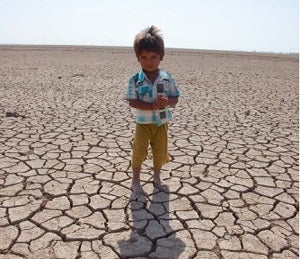 “Bye sir!” Rahul was running ahead into the distance. It was hard for me to imagine how he could be running… The cracked soil was incredibly hot and extended all the way to what looked like a lake in the distance. It was not a lake…it was a mirage.
“Bye sir!” Rahul was running ahead into the distance. It was hard for me to imagine how he could be running… The cracked soil was incredibly hot and extended all the way to what looked like a lake in the distance. It was not a lake…it was a mirage.
“He wants to be a doctor,” said his mother, who was walking next to me. “His sister does not know yet. She is only 2...”
When I came home from my visit to Gujarat, where we met Rahul Kalubhai Koli in Dhrangadhra in Surendranagar district, I could not stop thinking about him. He is 4 1/2, and he wants to be a doctor.
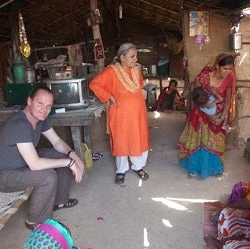
To fetch water, the women in the family walk all the way to the closest village, through the desert, in the scorching sun. The only good thing is that the generator that runs the pumps for salt production also gives them a little power, so Rahul does have light to study. It is just that the diesel to run that generator evaporates 70% of the family revenues.
SEWA is working to organize opportunities for Rahul and others like him to go to school, so, yes, he does have a fighting chance to become a doctor. And if you see the boy in the picture, I think you will agree with me that he will have a good fight in him.
It will be a fight against very long odds. Most boys with the same odds will not become doctors. In fact, most of them will remain poor.
I do not want any of us to promise Rahul that he will be a doctor. Maybe he won’t even want that when he grows up. But I do want all of us working on development in India, government and partners, to promise Rahul that we will do what it takes to make sure he will not be poor when he turns 21 in 2030.
I believe the World Bank’s new goal to end extreme poverty by 2030 can be achieved by all of us working together. And I know that to reach the goal, we at the Bank will have to think very differently. We will also have to work differently, collaborating closely with many partners, including committed grassroots organizations like SEWA. When we do this thinking and partnering, let us have Rahul and his sister in mind. First step: Let’s see how we can improve their nutrition. Second step: Let’s make sure they get to school. Third step: a solar-powered system to replace the diesel generator. With many more steps to follow, Rahul and his sister should not be poor in 2030!
More than half the salt produced in India is made in salt pans like those pictured below.
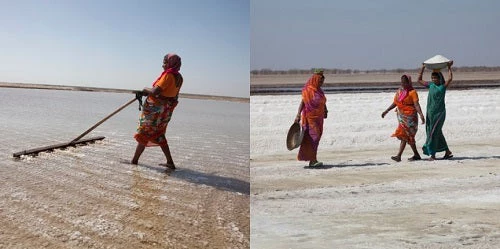
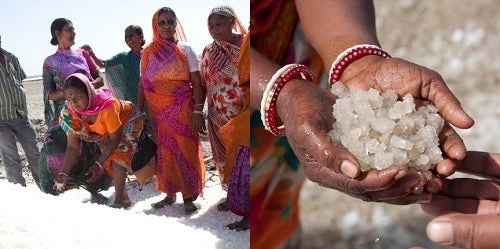
All photographs courtesy Martje van der Heide

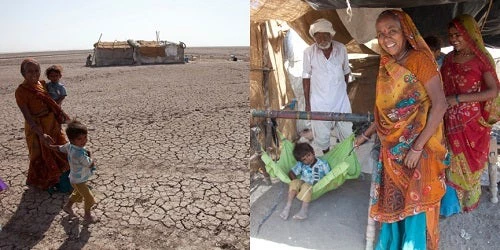
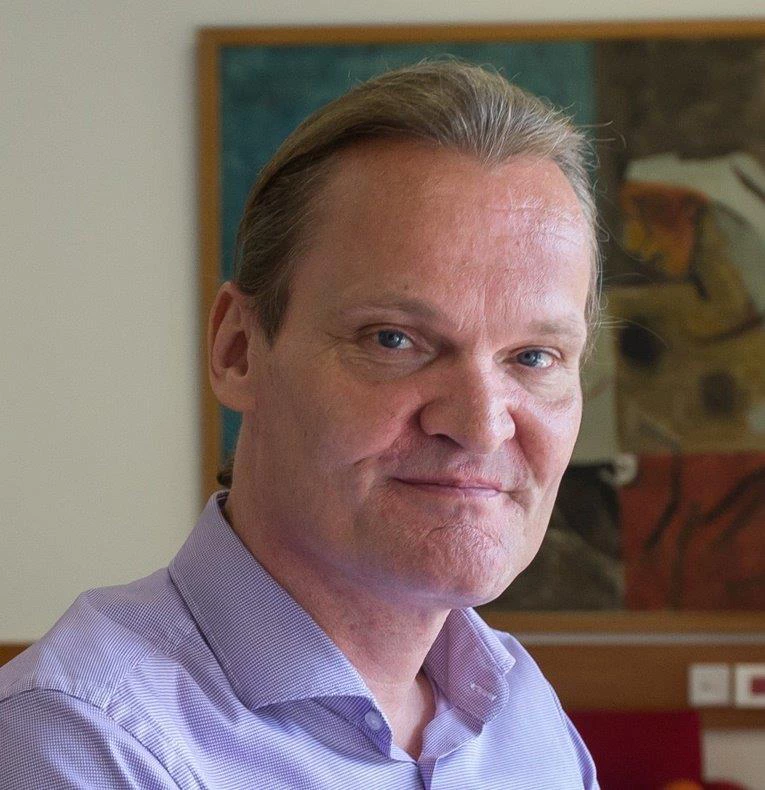
Join the Conversation